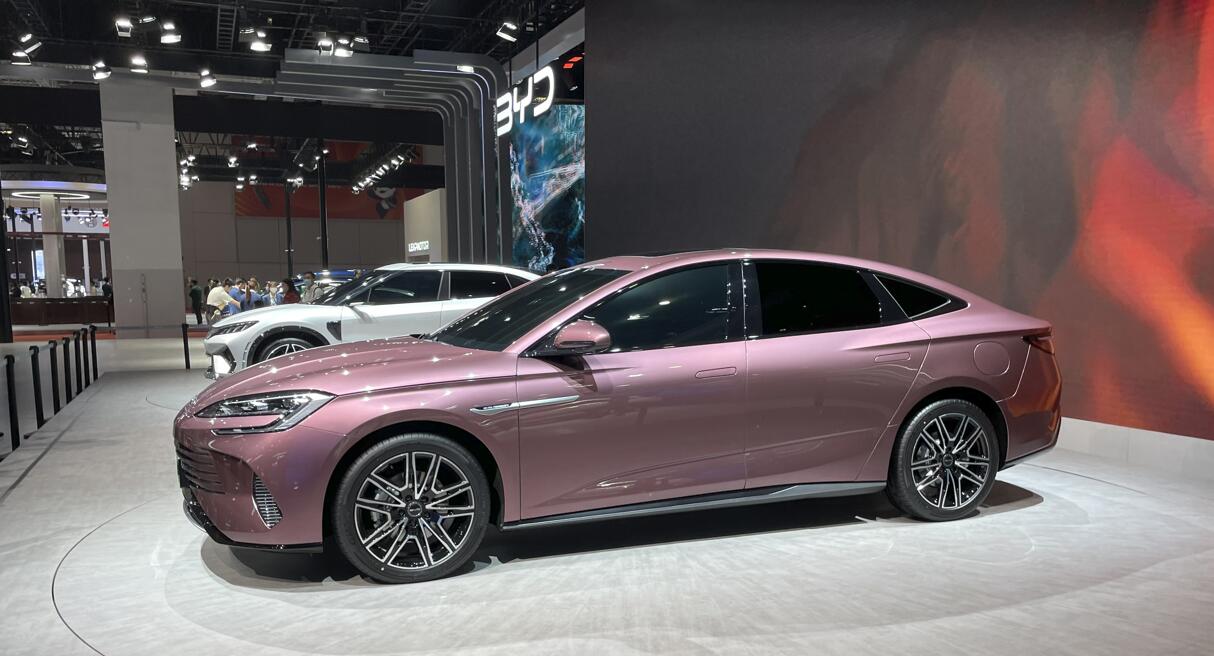Zhu Jiang, a former executive at NIO, Ford and Jidu Auto, has joined Lucid to head up its China operations, and he said Lucid is starting to prepare for its entry into the country.

(Image credit: Lucid Motors)
US electric vehicle (EV) startup Lucid Motors (NASDAQ: LCID) has hired an auto industry veteran in China, as it began hiring for a slew of positions late last year.
Zhu Jiang, who previously served in executive roles at NIO (NYSE: NIO), Ford (NYSE: F) and Jidu Auto, the car-making arm of Baidu (NASDAQ: BIDU), has joined Lucid to head up its China operations, local media outlet Jiemian reported on June 7.
Lucid is just starting to prepare for its entry into the Chinese market, Zhu told the outlet.
Since April, Zhu has been sharing information about Lucid in the status of his personal WeChat account, according to the report.
Lucid said on May 31 that it was raising about $3 billion through a new stock offering, most of which came from Saudi Arabia's Public Investment Fund (PIF), which controls it.
The financing is aimed at allowing Lucid to accelerate bringing state-of-the-art EV technology and product experiences to users across the industry and around the world, and China is looking forward to it, Zhu said recently, according to Jiemian.
Zhu is a Chinese automotive industry veteran who joined BMW Brilliance in 2003 to head marketing activities and served as Mini brand director from November 2008 to 2012.
He left BMW to join Lexus in 2013 and helped the automaker achieve its first 100,000-vehicle annual sales in China in 2016.
Zhu joined NIO in 2017 as vice president of user development.
He left NIO in the first half of 2020 and joined Ford China on June 1, 2020, as chief operating officer of the EV business unit.
During his time at Ford, he led the team through the production and launch of Ford's first all-electric vehicle, the Mustang Mach-E, in China.
In November 2021, Zhu joined Jidu as vice president and head of user development and operations. Jidu was officially launched on March 2, 2021 and the first model has been unveiled but has not yet hit the market.
Lucid was co-founded in 2007 by Bernard Tse, former vice president and director of Tesla, and Sam Weng, a former Oracle executive. In December 2016, Lucid's first production car, the Lucid Air, was launched.
Lucid is targeting the high-end luxury EV market, with the Lucid Air starting at a current price of $87,400.
In July 2021, Lucid went public on NASDAQ through a merger with a special purpose acquisition company (SPAC) and currently has a market cap of $14.5 billion.
In November 2021, Lucid said in its first earnings report after listing that it planned to enter the Chinese market in 2023.
The company's CEO, Peter Rawlinson, said in a CNBC interview at the time that Lucid will build a factory in China by "mid-decade".
In December 2022, Lucid's website opened up 14 jobs in China, all of them in Shanghai, in areas including hardware engineering, supply chain, retail, logistics, digital, and legal.
Three of the 14 jobs were related to localization, implying that Lucid was launching preparations to enter China at that time.
The post Lucid prepares for China entry, hires ex-NIO, Ford exec Zhu Jiang appeared first on CnEVPost.
For more articles, please visit CnEVPost.
















